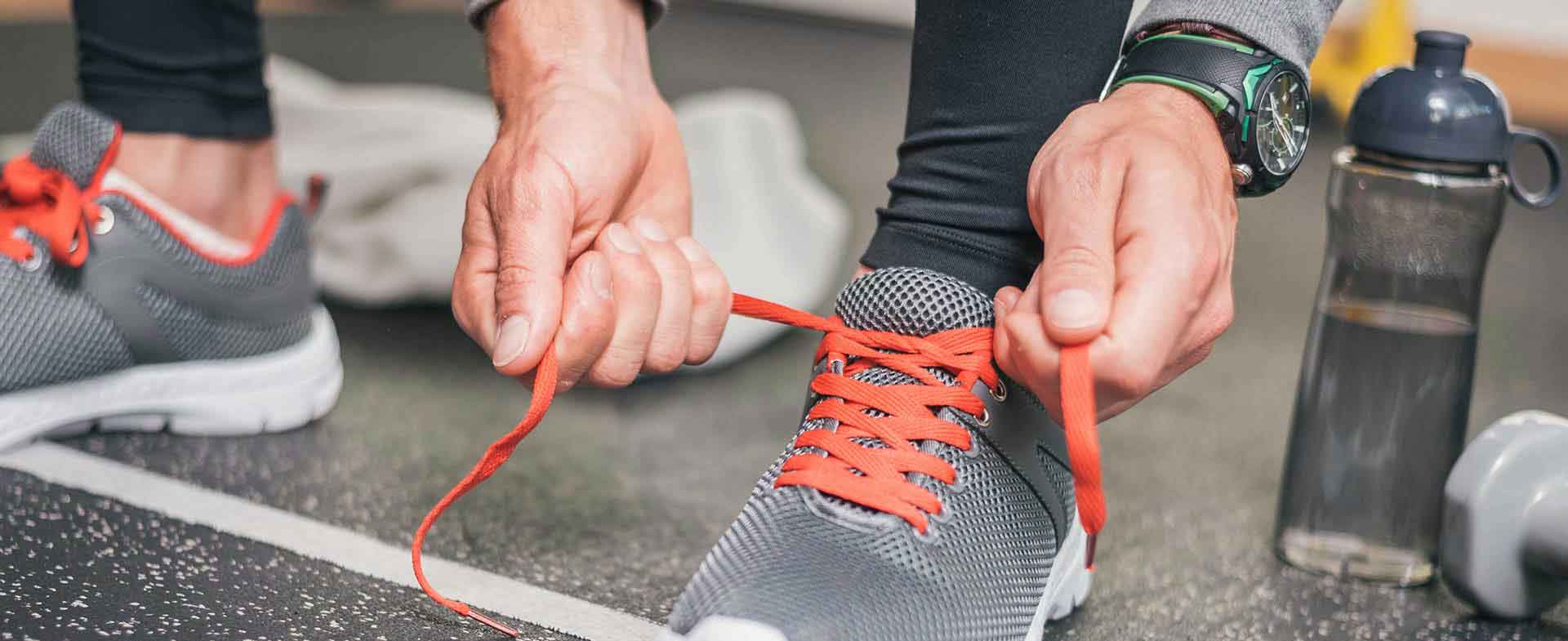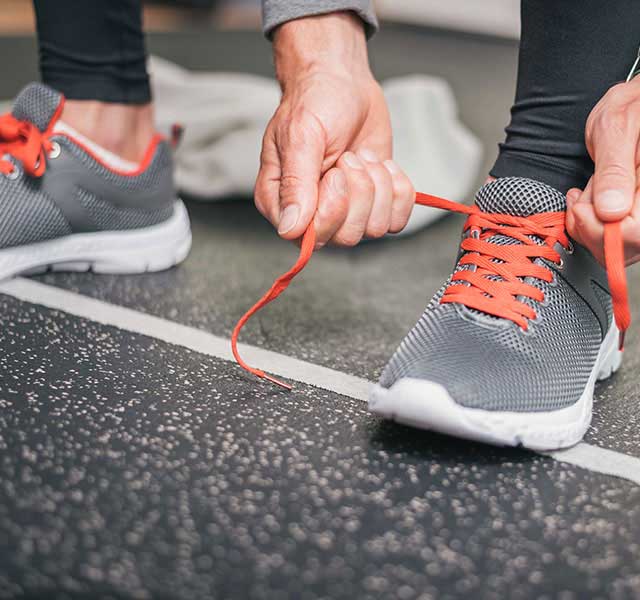Whether you prefer running, CrossFit or spin class – or a combination of all three – selecting the correct footwear depends on your activity. Add to that form, function and trendy neon colors, and it’s no wonder fitness enthusiasts often get stumped at the sporting goods store.
While run-of-the-mill exercise shoes may be appropriate for a variety of workouts, activities such as running, spinning and racquet sports require specialized footwear. For example, if you’re playing tennis while wearing a shoe designed to go forward, not side-to-side, the muscles, joints and tendons in your body will kick in to compensate for the lack of shoe support. Over time, taxing your body in that way can lead to injury.
Here’s a breakdown of which features to prioritize in your shoes, depending on your workout choice:
- Running. If you’re a runner, you need to look for a shoe that offers support – something that cradles your arch and cushions the heel. If you’re not running 20 miles at a time, you don’t need a huge heel lift. In fact, too much cushioning in the heel can cause runners to adopt a heel strike running pattern that leads to overuse injuries. Running short distances or doing other forms of cardio? Opt for a multipurpose sport shoe to get the appropriate heel support.
Related Topic: Tips for Running on Different Outdoor Surfaces - Biking. If you’re road or mountain biking, you can choose between clip-free and clip-oriented shoes. For the most part, it’s a matter of preference. Do you want to clip into the bike? Or just attach your shoes with accompanying molds? If you’re spinning at a gym, your best bet is to ask the staff what kind of clips they use, or if they work with a clip-less system. It’s also important to know what kind of molds they have so you can ensure your shoes will work with their equipment.
- Weightlifting. Weightlifting shoes are very different from your average workout shoe. They’re rigid – there’s even a plastic mold on the bottom of the shoe – and they have a high heel lift to allow for deep squats. In fact, you really can’t do much in them other than lift weights.
- CrossFit. Unlike traditional activities – running, swimming, cycling – CrossFit is a “branded sport” and Reebok is the brand name leader in CrossFit gear, with Nike trailing just behind. No matter what the brand, CrossFit shoes are designed for multiple activities. The sole is rounded, allowing you to perform lateral moves and jump up and down. The caveat: They’re not good for running, especially distances over half a mile.
- Racquet Sports. Racquetball and tennis shoes typically sport a sole that is rounded on the sides so the foot can move freely in all directions. If you have pre-existing ankle or knee injuries, you may need additional arch support or an ankle brace.
Adequate shoe support is not only critical to preventing injury, it also ensures you maintain a proper movement pattern. Wear the wrong shoes and you may suffer from shin splints or plantar fasciitis – both can arise from improper arch support or poor foot alignment within the shoe itself. Untreated shin splints can lead to stress fractures, while plantar fasciitis can lead to disabling pain.
Less common injuries include tendinitis of any muscles in the lower leg or in the patellar tendon, IT band friction syndrome (more common in long distance runners who have too many miles on their shoes), or even hip and knee problems in people who may have weak supporting musculature in general or preexisting conditions that could be exacerbated by poor form in conjunction with poor footwear choices.
A lot of people choose style over function, opting for shoes that are pretty or cool and trendy but offer zero support – and that’s the wrong way to go.



